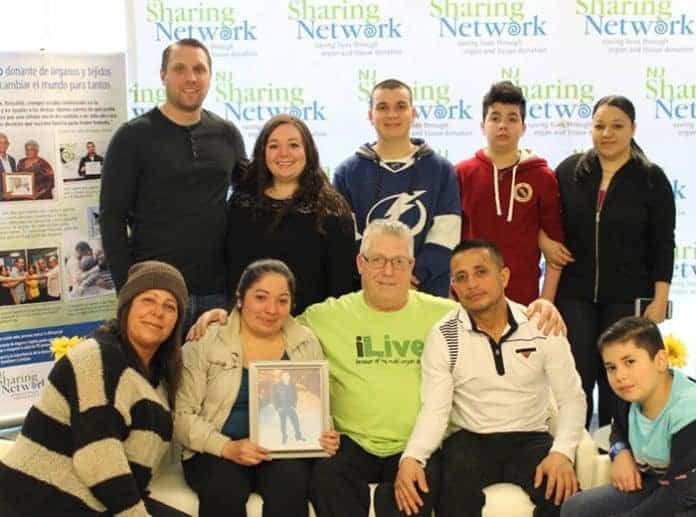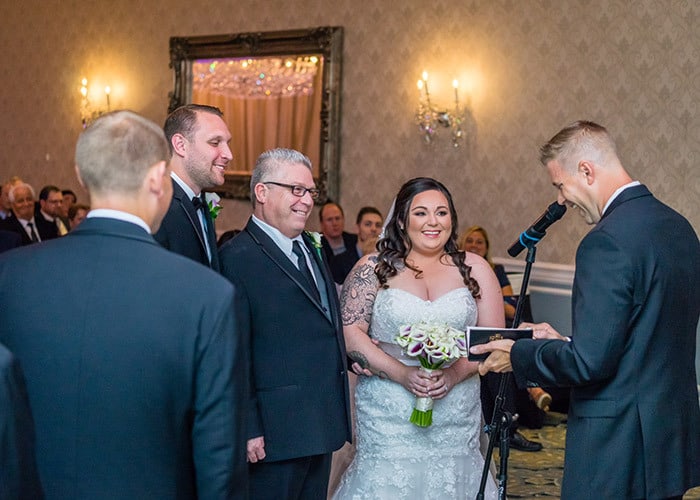
OCEAN GATE – When Robert Fisher woke up from his second heart transplant, he knew something about him was different.
Fisher, an Ocean Gate resident, has had a history of surgeries and medical issues. Back in 2013, he had his first heart transplant. Fisher said that this heart did not take and he knew something was wrong once he began having issues after merely one day with his new heart.

Fisher underwent three open heart surgeries following the first transplant and the issues subsequently damaged his kidneys. Fisher was put back on the transplant list, in need of a new heart and kidney. On August 2, 2016, his luck finally came through when another heart did.
When 24-year old Nolman Rodriguez was fatally shot on his way to a birthday party in Trenton on August 1, 2016, his heart was later fated to save Fisher’s life.
“I am blessed to get two (hearts),” said Fisher. Fisher said that the man headed for the operating room beside his at the time was also destined to receive Nolman’s lungs.
He noted that there is a rule, a sort of grievance period, which prevents the organ donors and recipients from any contact for at least a year after the transplant. So after a year, Fisher knew that he had to meet the family of the individual that saved his life.
On Jan. 13, Fisher met Nolman’s sister Rosalia, and his brother, two nephews, and a family friend. Upon meeting the family, Fisher admitted, “I was scared.”
They entered through separate doors and were met by The NJ Sharing Network, a “non-profit organization responsible for the recovery and placement of donated organs and tissue for those in need of a life-saving transplant,” according to their website.
“His (Nolman’s) sister, Rosalia, wanted to meet me first,” said Fisher. She went up to him and just held him. Her other brother soon joined in. “The hug must’ve lasted for about 15 minutes,” Fisher joked.
The experience of meeting the Rodriguez family was like none other for Fisher. Fisher mentioned that Nolman and his family are immigrants from Honduras and only speak Spanish. However, despite the language barrier, meeting the family of the man who saved his life made him feel as though something was clicking.
“My life is like a puzzle, and the final piece was meeting the family,” he said. “It really put it into perspective.”
However, there was a twinge of something else that Fisher felt as the Rodriguez family took turns listening to their brother’s heart beat inside Fisher’s chest.
“It’s kind of like a guilty feeling,” he explained. “That I get to be here and he doesn’t.”
But Fisher insisted that despite this bit of guilt, he felt overwhelmed by the connection he had acquired to Nolman and his family. He said that the family gave him a photo of Nolman and that, even though that was the first time Fisher had seen his face; he already knew what he looked like.
“Before that, I could have described him; if I closed my eyes, I could see him clearly,” he said.
Fisher’s deep connection to the previous owner of his new heart is strong and helps him to believe that he [Nolman] is still alive, that he is still here, living through him.
None of this would have been possible without the NJ Sharing Network. They are responsible for putting the two in contact with one another, because, as Fisher said, “You get no information (from the hospital).”

The Network is responsible for procurement of organs and information, and they have the capability to set up the meeting, as they did with Fisher and the Rodriguez family.
“It was a beautiful, heartwarming meeting. I was actually the transplant coordinator that met Rosalia and her family when they were faced with the tragic death of Nolman,” said Paula Gutierrez, NJ Sharing Network’s Manager of Family Services who attended the meeting and worked closely with the donor family.
“I was with this family in the hospital to provide support during this loss and helped in translating a lot of the information to the family since they do not speak Spanish,” she said.
Gutierrez noted that NJ Sharing Network takes pride is supporting the donor families. “To be able to be a part of the various moments of this family’s journey, from helping them understand the death of Nolman, to offering them organ donation, to being present when they met his heart/kidney recipient was truly humbling and poignant.”
Since the meeting, Fisher has stayed in touch frequently with the family. “We’ve been texting ever since; we will always continue to be together.”
Fisher believes that his trials with multiple surgeries and his brushes with death have given him purpose, that the “big man upstairs” has a reason for keeping him here.
“If my story can change someone, can make then become an organ donor on their driver’s license, then I have served my purpose,” he said.






